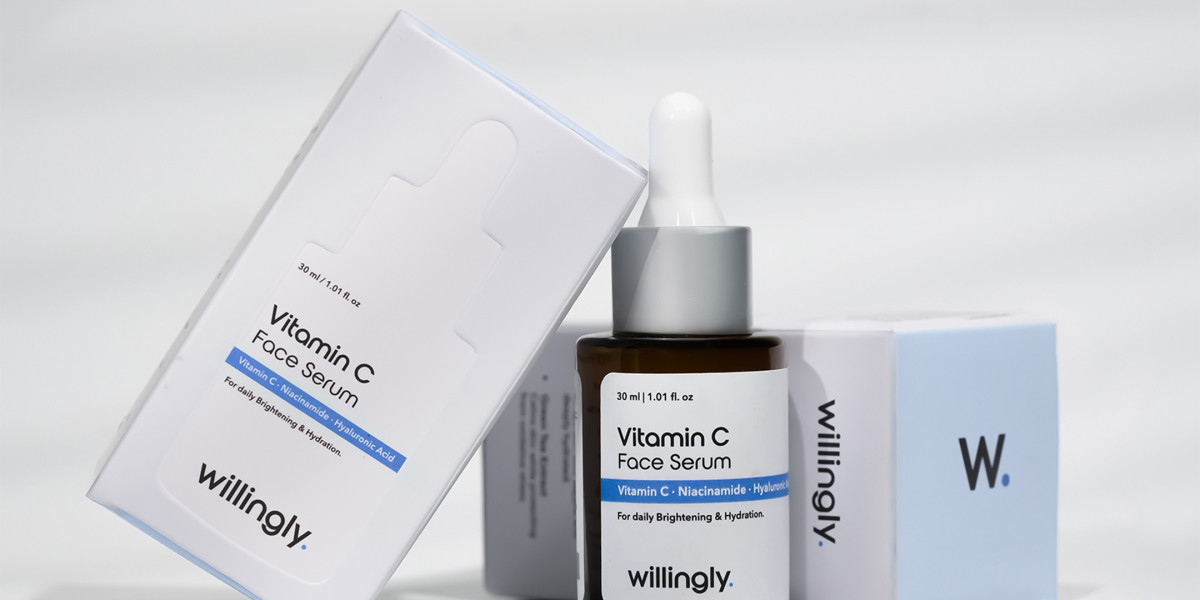Vitamin C is more than just the nutrient we associate with oranges and immunity. It’s a powerful antioxidant, a skin-brightening agent, and one of the most celebrated vitamins in the world of health and beauty. From fighting free radicals to keeping your skin youthful, Vitamin C truly deserves its title as the “anti-aging hero.” But what exactly makes it so special? Let’s break it down.
What is Vitamin C?
The Science Behind Vitamin C
Vitamin C serum, also known as ascorbic acid, is a water-soluble vitamin that plays a vital role in various biological processes. Since the human body cannot produce or store it in large amounts, regular intake through food or supplements is essential.
Types of Vitamin C (Natural vs. Synthetic)
Interestingly, whether Vitamin C comes from a fresh orange or a capsule, its chemical structure remains identical. The main difference lies in the absorption rate and presence of additional nutrients found in natural sources.
Vitamin C serum as a Powerful Antioxidant
How Antioxidants Work in the Body
Think of antioxidants as bodyguards protecting your cells from “free radicals”—unstable molecules that cause oxidative stress and cellular damage.
Role of Vitamin C in Fighting Free Radicals
Vitamin C is one of the strongest antioxidants. It neutralizes free radicals, protecting DNA, proteins, and lipids from damage, which in turn reduces the risk of chronic diseases and premature aging.
Vitamin C and Skin Health
Boosting Collagen Production
Collagen is the protein responsible for youthful, firm skin. Vitamin C stimulates collagen synthesis, keeping your skin plump and reducing sagging.
Fading Dark Spots and Hyperpigmentation
Vitamin C inhibits melanin production, making it effective in reducing dark spots, sun damage, and acne scars.
Improving Skin Elasticity
Regular intake and topical use improve elasticity, giving your skin a smooth, youthful glow.
Anti-Aging Benefits of Vitamin C
Reducing Fine Lines and Wrinkles
By boosting collagen and fighting free radicals, Vitamin C helps soften fine lines and wrinkles, making you look younger.
Preventing Premature Aging
Daily exposure to UV rays and pollution speeds up skin aging, but Vitamin C acts as a shield against these environmental stressors.
Vitamin C for Immunity
Strengthening the Immune System
Vitamin C supports the production of white blood cells, enhancing the body’s defense mechanism.
Fighting Infections and Colds
Although it doesn’t cure colds, Vitamin C can reduce the duration and severity of cold symptoms.
Other Health Benefits of Vitamin C
Heart Health and Blood Pressure Control
Vitamin C lowers oxidative stress, improves blood vessel function, and may help reduce blood pressure levels.
Supporting Eye Health
Vitamin C protects against cataracts and age-related macular degeneration.
Enhancing Iron Absorption
It improves the absorption of non-heme iron (from plant-based foods), preventing anemia.
Food Sources of Vitamin C
Fruits Rich in Vitamin C
- Oranges
- Kiwi
- Strawberries
- Papaya
- Guava (one of the richest sources)
Vegetables Rich in Vitamin C
- Bell peppers
- Broccoli
- Kale
- Brussels sprouts
- Spinach
Daily Recommended Intake
Adults need about 65–90 mg per day, with an upper safe limit of 2,000 mg.
Vitamin C Supplements
When Supplements Are Needed
If your diet lacks fresh produce or you have increased needs due to stress, illness, or smoking, supplements may help.
Choosing the Right Supplement
Options include tablets, capsules, powders, and chewables. Look for trusted brands with minimal additives.
Dosage and Safety Guidelines
Excessive intake may cause stomach upset or kidney stones, so stick to recommended levels.
Topical Vitamin C in Skincare
Vitamin C Serums and Creams
Topical Vitamin C is a skincare favorite for brightening, firming, and protecting against environmental damage.
How to Use Vitamin C Skincare Products Effectively
Apply Vitamin C serums in the morning before sunscreen to maximize protection against UV rays.
Common Side Effects and Precautions
Mild irritation or tingling is normal, but always do a patch test first.
Vitamin C Deficiency
Signs and Symptoms
- Fatigue
- Weak immunity
- Gum bleeding
- Slow wound healing
- Dry, rough skin
Risks of Low Vitamin C Intake
Severe deficiency can cause scurvy, though it’s rare in modern times.
Vitamin C Myths vs. Facts
Common Misconceptions About Vitamin C
- Myth: Vitamin C cures colds instantly.
- Fact: It only helps shorten the duration.
- Myth: More Vitamin C = more benefits.
- Fact: The body excretes excess amounts.
How to Maximize Vitamin C Absorption
Best Combinations (e.g., with Vitamin E, Zinc)
Pairing Vitamin C with Vitamin E boosts antioxidant effects, while zinc helps strengthen immunity.
Things That Reduce Vitamin C Absorption
Smoking, alcohol, and excessive caffeine intake can reduce absorption.
Practical Tips for Adding More Vitamin C to Your Lifestyle
- Start your day with a glass of lemon water.
- Snack on fresh fruits like kiwi or strawberries.
- Add bell peppers or broccoli to your meals.
- Use a Vitamin C serum daily for glowing skin.
Conclusion
Vitamin C is more than just an immunity booster—it’s a complete health and beauty powerhouse. From fighting free radicals to enhancing skin glow and delaying signs of aging, it truly earns the title of an antioxidant and anti-aging hero. By making simple changes in your diet and skincare routine, you can harness its incredible benefits for a healthier, brighter future.
FAQs
1. Can Vitamin C be taken every day?
Yes, daily intake is safe as long as you stay within the recommended limit.
2. Is topical Vitamin C better than oral supplements?
Both work differently—oral Vitamin C supports overall health, while topical use directly benefits the skin.
3. Can Vitamin C cause side effects?
Excessive intake may lead to digestive issues or kidney stones, but it’s generally safe in normal amounts.
4. What time of day is best to take Vitamin C?
Morning is ideal, but since it’s water-soluble, you can take it any time with meals.
5. Does Vitamin C really prevent aging?
It doesn’t stop aging, but it slows down visible signs like wrinkles, fine lines, and dullness.





